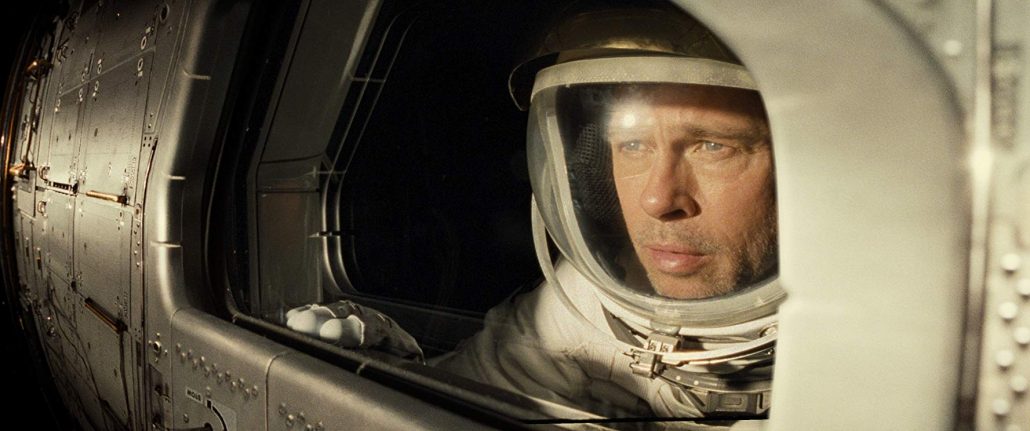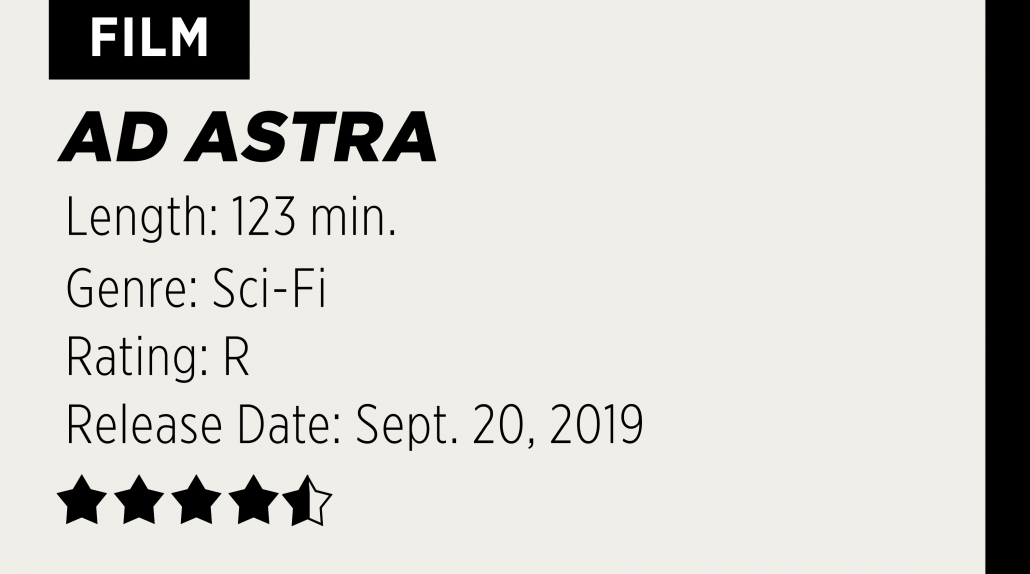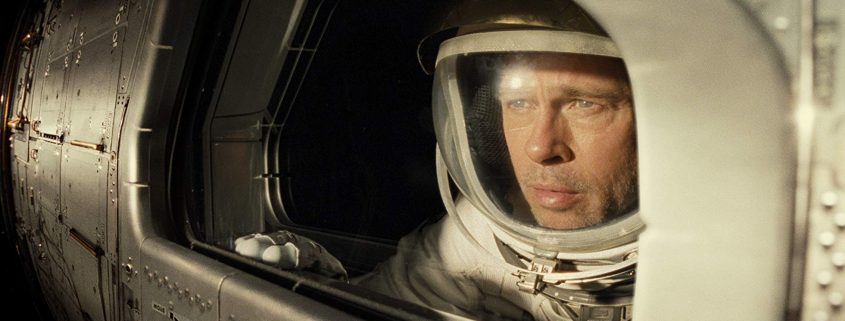REVIEW: ‘Ad Astra’ triumphantly takes to the stars

James Gray, a School of Cinematic Arts alumnus, is no stranger to making films about fathers and sons. His 2016 film, “The Lost City of Z,” tangentially explores the tenuous relationship between a workaholic father and his cloying son — but this year’s “Ad Astra” takes that theme to a whole new level.
“Ad Astra” takes place in a future where humans have colonized the moon, Mars and have even begun to explore other parts of the solar system. The movie follows Major Roy McBride (Brad Pitt), an astronaut lauded for his ability to keep his emotions under wraps. He’s a broken man — estranged from his family, emotionally repressed and utterly consumed by his work, an unending cycle of missions and incessant mandatory psychological examinations.
His father, the esteemed H. Clifford McBride (Tommy Lee Jones), is a Neil Armstrong-level icon who is lost on a deep space exploration mission called “Project Lima.” When mysterious bursts of cosmic rays from Project Lima near Neptune disable technology all over Earth and its settlements, Roy is called in to investigate, kicking off a journey through the solar system and his tumultuous relationship with his father.
“Ad Astra” is a rare aligning of the stars, pairing a director at the height of his craft with an incredible late-career performance from one of the last bastions of classic movie stardom.
Gray employs his particular brand of classical direction — a type of quiet formalism far more concerned with effectively and interestingly conveying the story than being stylish or flashy. He also borrows from different genres — the most memorable sequences in the movie are a horrific creature attack on an abandoned ship and a “Mad Max”-inspired ambush by moon pirates. The direction, paired with Hoyte van Hoytema’s stellar cinematography, makes the entire film a visual treat. Simple shots such as Major McBride walking down a hallway or traveling on a rover are elevated to magnificence, making the entire story feel like a modern epic.
Brad Pitt, who has already enjoyed a great year with his lauded role in “Once Upon a Time… In Hollywood” is also at the top of his game here, giving a mostly silent performance that forces him to be extremely expressive. There is one scene in particular where he valiantly attempts to hold back tears while recording a message for his father. It seems destined to be his Best Actor in a Leading Role clip.
The script, written by Gray and Ethan Gross, deftly deconstructs Major McBride, exploring the conflict between father and son and how toxic masculinity can be passed on. “In the end, the son suffers the sins of the father,” muses McBride in a voiceover on his way to Neptune to meet the source of his troubles.
Prior to release, “Ad Astra” had its fair share of production drama, resulting in some elements of the film being clunkier than others. It was initially slated to be released this January, but wasn’t completed, so Fox pushed it to May. Then, when Disney purchased 21st Century Fox, they again pushed it to September, ordering a fair number of reshoots. These were probably ordered to add in the voiceover that permeates the film and, unfortunately, tends to over-explain moments that may have resonated more if they were left silent.
The end product, however, is a true masterpiece. Although on the surface it is easy to compare “Ad Astra” to the string of contemplative sci-fi movies that have come out in the past decade — “Interstellar,” “Arrival” and “The Martian” come to mind — it is more indebted to films like “2001: A Space Odyssey,” “Solaris” and “Blade Runner: 2049.”
“Ad Astra” is an exercise in a type of quiet, contemplative cinema that uses the vastness of space to comment on the delicate minutiae of the human spirit and to get at something more ineffable about the human condition.


